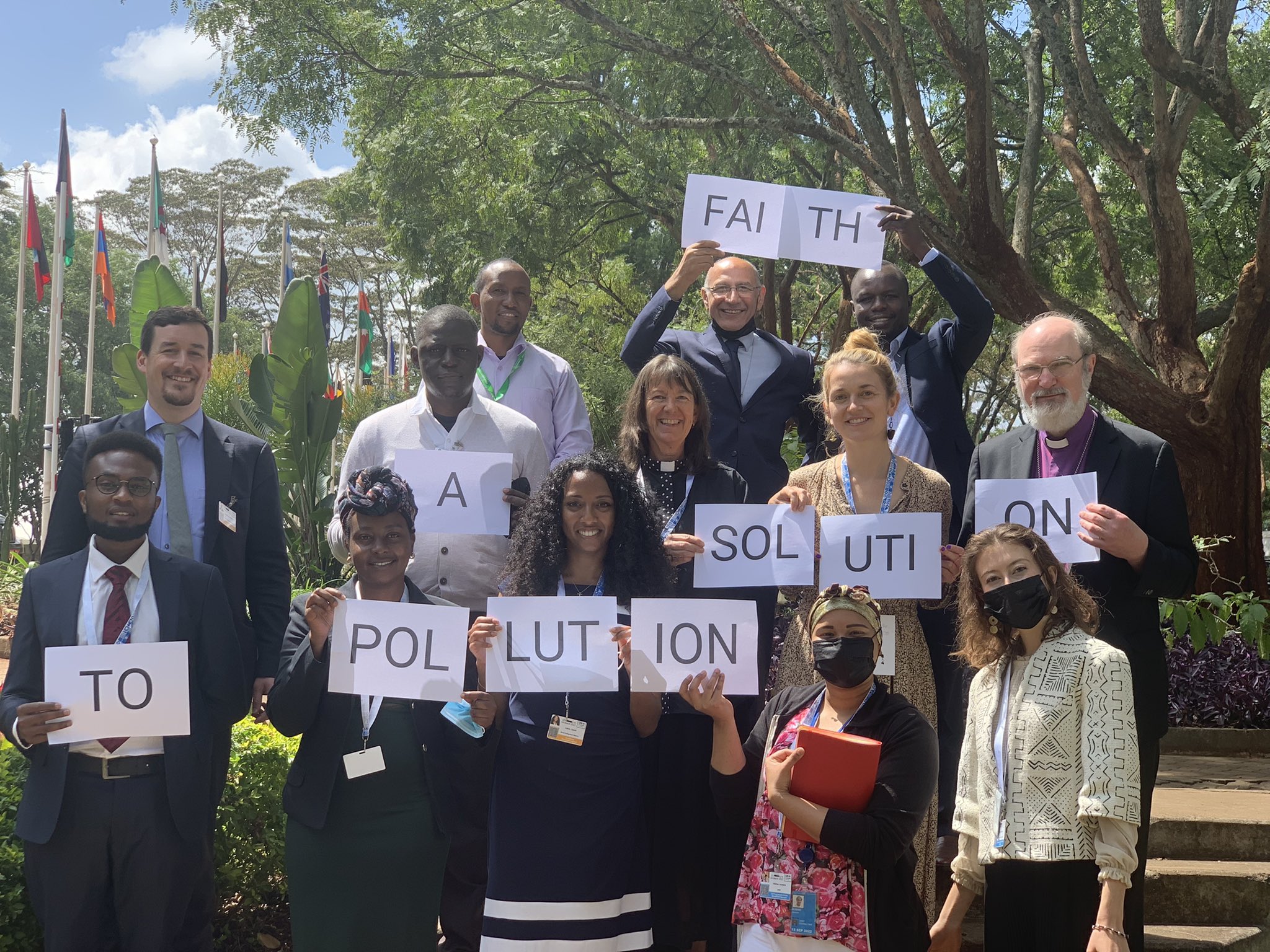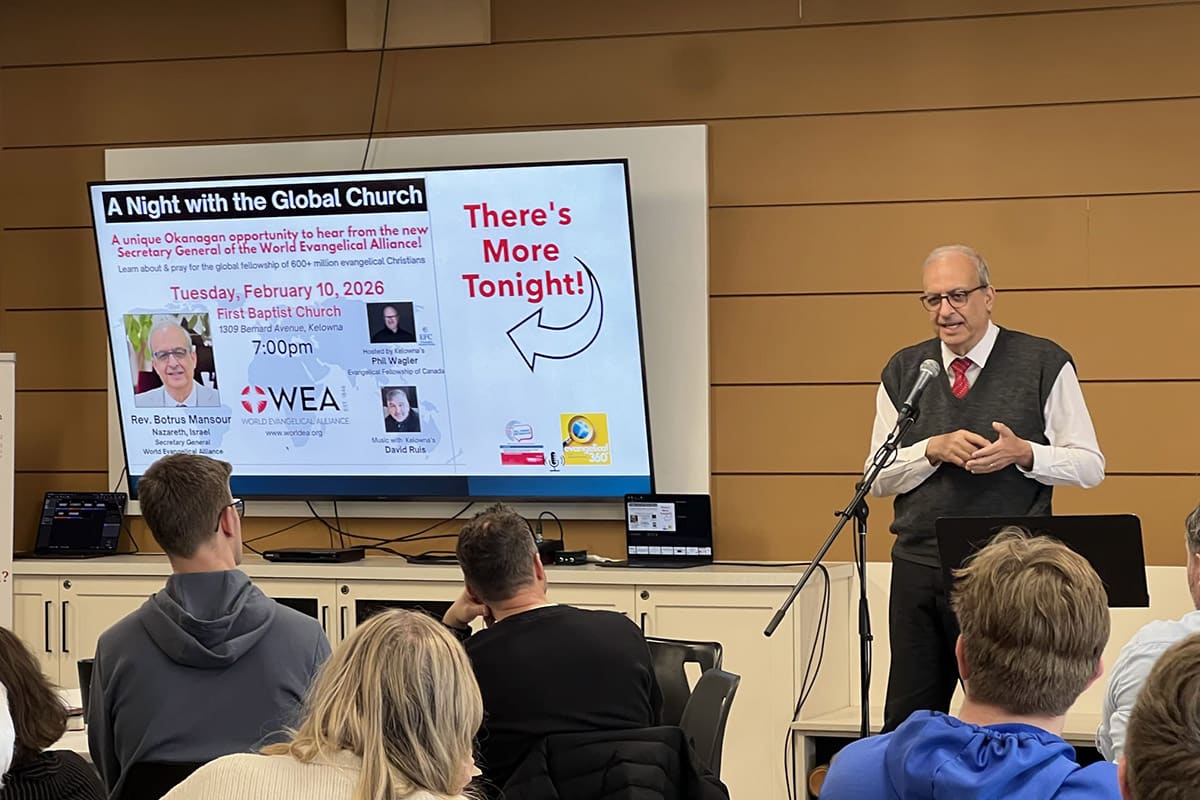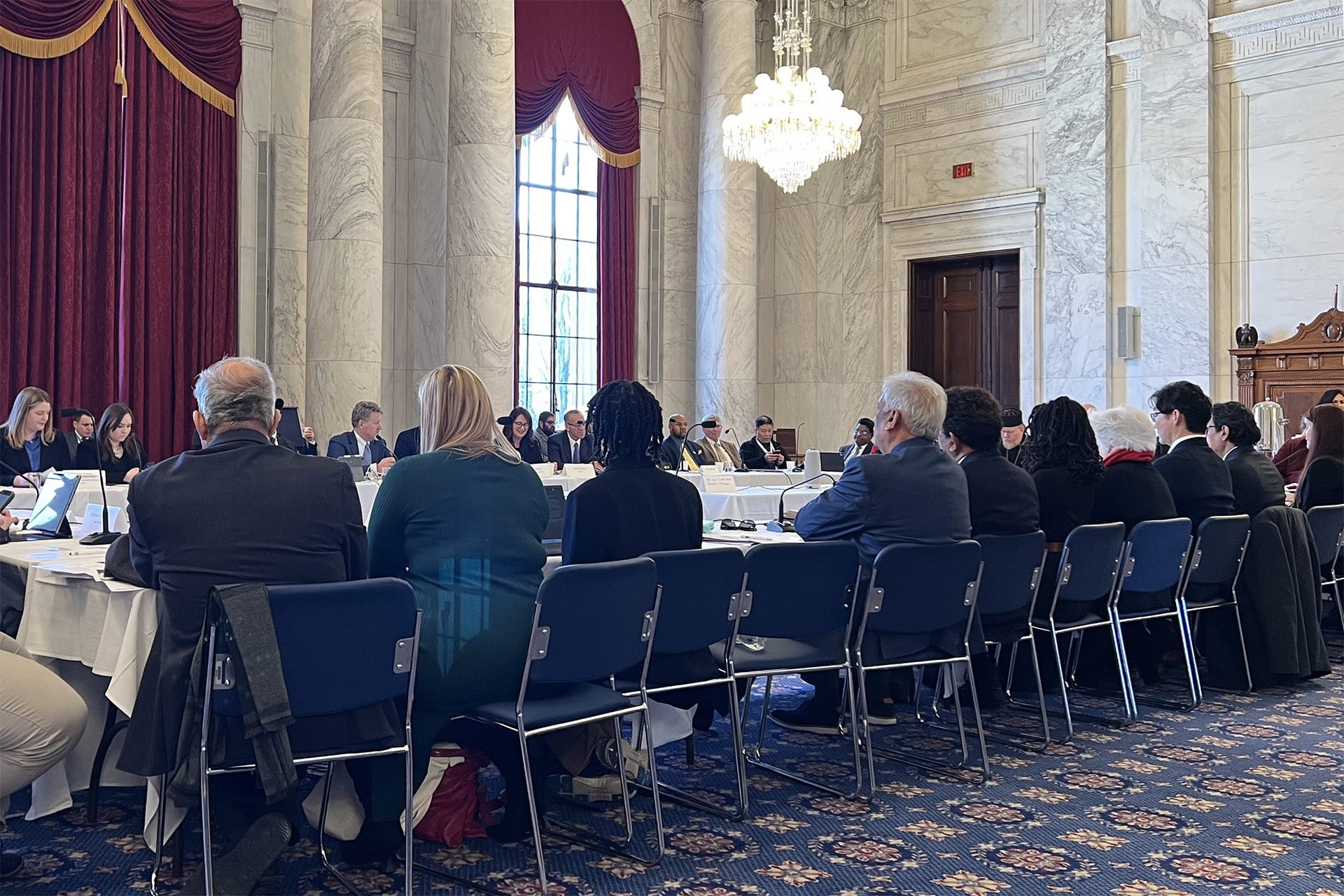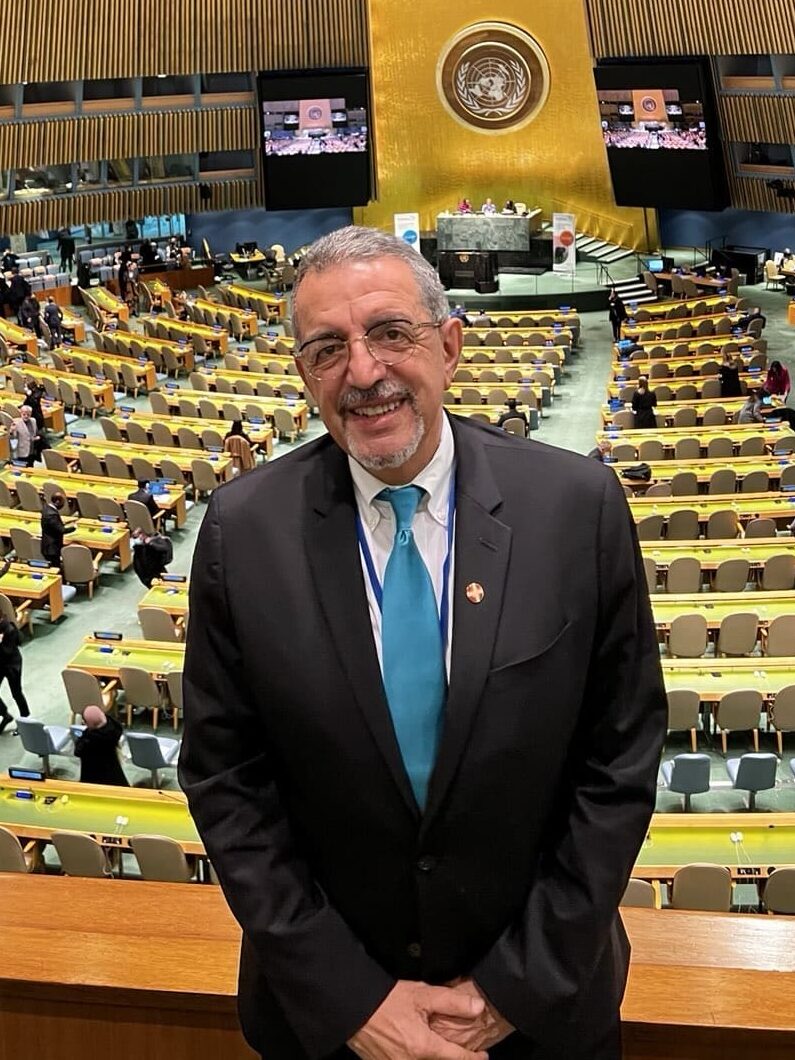New York, NY – March 5, 2022
The World Evangelical Alliance (WEA) welcomes the resolution agreed upon at the fifth United Nations Environment Assembly (UNEA-5) to end plastic pollution and forge an international legally binding agreement by 2024. The WEA together with other faith actors has advocated for a robust response to the issue of the exponentially increasing pollution currently estimated at 400 million tons of plastic per year.
Speaking from Nairobi, Kenya where the UNEA-5 was held from February 28 to March 2, Dr Matthias Boehning, Director of WEA’s Sustainability Center in Bonn commented: “Today, the second part of the fifth United Nations Environment Assembly came to a close with a big success addressing one of the most pressing issues of our time: the mandate to advance an international legally binding treaty that addresses the full life cycle of plastics in all environments was passed.”
“What we will see now is the beginning of formal intergovernmental negotiations to create a legally binding instrument to end plastic pollution. It’s the beginning of a legal process and a scientific process to create this instrument which will take the form of a legally binding treaty. The negotiations will be challenging, but what we have seen today is real progress. As a faith actor we will continue to advocate for a plastics treaty that addresses the full life cycle of plastics, covers all impacts in all environments, and upholds human rights,” he said.

In a press statement, the UN Environment Programme said “the resolution […] establishes an Intergovernmental Negotiating Committee (INC), which will begin its work in 2022, with the ambition of completing a draft global legally binding agreement by the end of 2024. It is expected to present a legally binding instrument, which would reflect diverse alternatives to address the full lifecycle of plastics, the design of reusable and recyclable products and materials, and the need for enhanced international collaboration to facilitate access to technology, capacity building and scientific and technical cooperation.”
WEA Secretary General Bishop Dr Thomas Schirrmacher also participated in the UNEA-5, meeting with representatives of the UN, governments and civil society. He expressed the WEA’s desire to contribute to meaningful solutions to environmental issues based on the Biblical mandate to care for God’s creation.
“God entrusted us with this beautiful creation, including the vast oceans that we should preserve and protect. Therefore, we must find ways, intelligent ways, to control the mass of plastic we are using,” Schirrmacher commented, and added: “We are pleased with the outcome of the UNEA-5 and the resolution to create a legally binding agreement within the next two years that will serve as a tool to end plastic pollution globally.”





Stay Connected